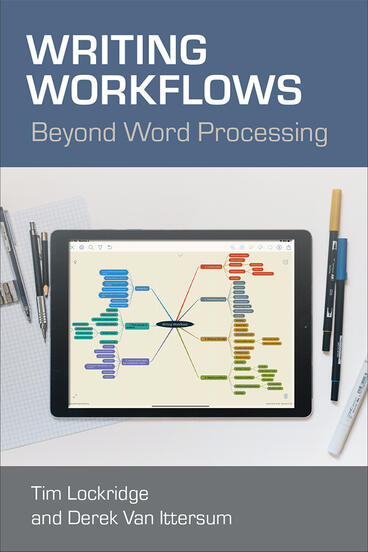Writing Workflows
Beyond Word Processing
A study of how writing tools and the writing process shape each other
Description
Since the late 1990s, writing process research has often treated the tools of writing as an invisible variable or idiosyncratic choice. For example, writing process research might examine how a writer develops ideas or moves through drafts, but it often omits the role of tools: a favorite fountain pen, a trusty yellow memo pad, or a mobile notetaking app. Writing Workflows: Beyond Word Processing uses the concept of the “writing workflow” to bring attention to those seemingly invisible tool choices. Through a type of reflection that the authors call “workflow thinking,” writers can look at their processes and ask how tools shape their habits—and how a change in tools might offer new ways of thinking and writing. Similarly, the book also introduces a practice the authors call “workflow mapping,” which helps writers trace their tool preferences across time. Through workflow mapping a writer can better see how their tool preferences have accrued over time and imagine how new technologies might fit in. Ultimately, the book offers these new theories to help researchers better understand how writing process shapes the tools of writing, and how the tools of writing, in turn, also shape writing process.
Tim Lockridge is Assistant Professor of English, Miami University.
Derek Van Ittersum is Associate Professor of English, Kent State University.
Supplemental Materials
Please see our Fulcrum platform for additional resources related to this title.

